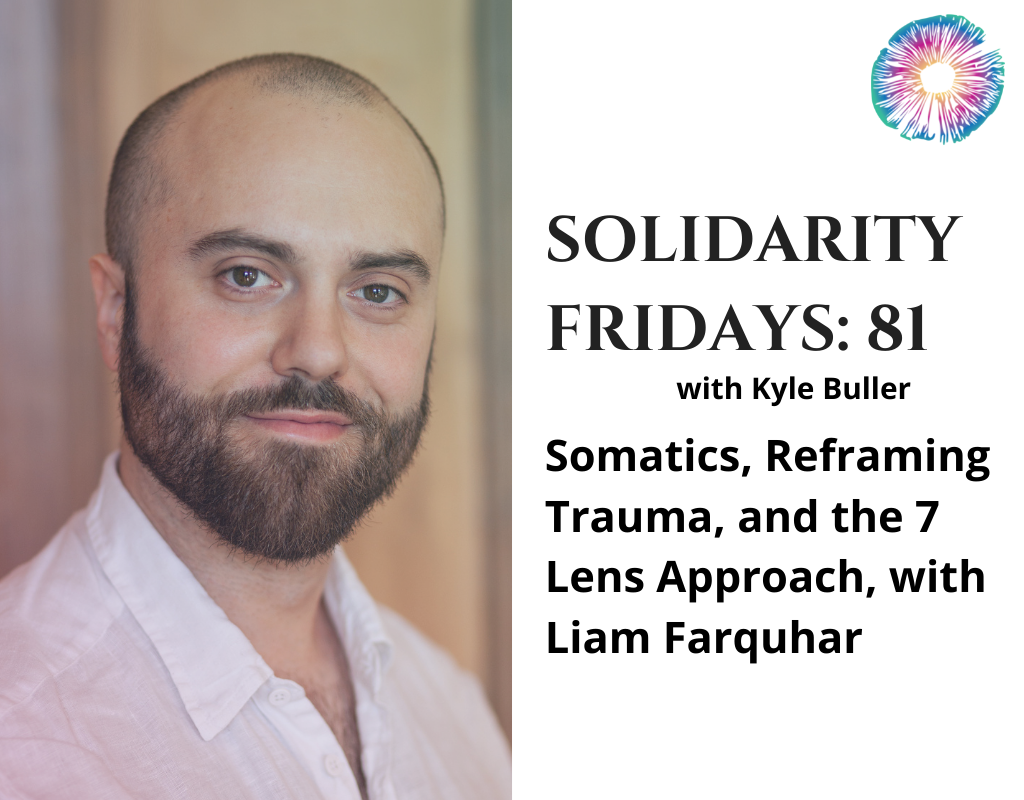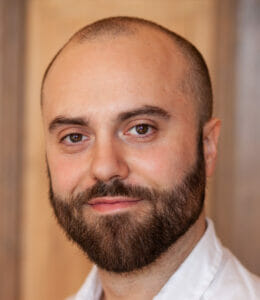
Health
PTSF81 – Somatics, Reframing Trauma, and the 7 Lens Approach, with Liam Farquhar
October 15, 2021
In this week’s Solidarity Fridays episode, Kyle speaks with integration specialist, past Navigating Psychedelics student, and Netherlands-based legal psychedelic guide, Liam Farquhar.

In this week’s Solidarity Fridays episode, Kyle speaks with integration specialist, past Navigating Psychedelics student, and Netherlands-based legal psychedelic guide, Liam Farquhar.
Farquhar talks a lot about trauma and how it needs a rebranding: how it’s a far more common part of life than psychiatry has led us to believe, and how it’s much more wide-ranging, in that whatever is overwhelming the body and causing its fight or flight response could really be anything. They talk about Covid-related burnout and the struggle for healthcare workers to show up for patients; how working through trauma is not a rational, “talk it out” process; how the body can’t differentiate between what’s causing it pain; the concept of the body keeping score while the mind hides it; and how the best way to work through trauma might be by physically shaking for long periods of time- an exorcism of energy.
He also talks about his “7 Lens” approach, Internal Family Systems as modern-day shamanism, Peter Levine, the Newtonian-Cartesian paradigm (are we stuck in it?), Bernardo Kastrup and idealism, how the brain is a receiver (not creator) of consciousness, how our Self is our best healer, and the idea that even by defining “soma,” we’re separating the mind and the body. This one will definitely get you thinking, folks.
Notable Quotes
“Overcoming [trauma] is primarily a physiological process. Traumas in the body and overcoming it isn’t a rational process. It’s not a thinking process. It’s a much deeper process than that, and in fact, the more you can tune your rational mind down, I’ve found, the more an instinctual healing process can happen; a healing process that our bodies have evolved over millions of years to instinctively know how to do. Often the thinking mind gets in the way of that.”
“I think to say that you don’t work with trauma is to say that you don’t understand trauma.”
“All I do is provide a process using the model where the client interacts with their own parts [and] the parts then tell the client what they need. But the most important relationship to establish in Internal Family Systems is that between the client and their self, because it’s the self that’s always with them, and it’s the self that heals. The self does all the healing. So I simply just support that process. I don’t actually need to be too clever about it. All the answers, all the potential, all the wisdom is within the client.”
“Just because we can’t make something falsifiable doesn’t mean it’s not true. We’re reaching the limits of what we can measure. We won’t be able to prove multiverse theory (if that’s true), but it’s not to say that it might not be true. And something like consciousness: How are we going to prove that, really?”
Links
Psychedelics Today: Navigating Your Way Through the Psychedelic Field: How to Get Involved
Psychedelics Today: PTSF78 – Navigating the Vast Psychedelic Space: Where Do You Fit In?
Madinamerica.com: Ending The Silence Around Psychedelic Therapy Abuse
Tme.com: How COVID-19 Opened the Door to a New Era in Psychedelic Medicine
The Body Keeps the Score: Brain, Mind, and Body in the Healing of Trauma, by Bessel Van Der Kolk
Somaticexperiencing.com: Ergos Institute of Somatic Education (Peter Levine’s site)
Breath|Psyche|Soma: A Clinical Introduction to Breathwork and Trauma Resolution, by Kyle Buller
Psychedelics Today: What is Breathwork?
About Liam Farquhar

Support the show!
- Patreon
- Leave us a review on Facebook or iTunes
- Share us with your friends
- Join our Facebook group – Psychedelics Today group – Find the others and create community.
Navigating Psychedelics



